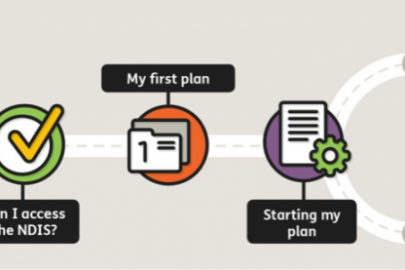Understanding NDIS Practice Standards: A Guide for Service Providers
Navigating the National Disability Insurance Scheme (NDIS) requires a commitment to high-quality service delivery. Service providers play a crucial role in ensuring that participants receive the support they need to lead fulfilling lives. To maintain consistency and excellence in service provision, the NDIS has established practice standards. In this article, we’ll explore four key NDIS practice standards that service providers must adhere to. What are 4 NDIS practice standards used by service providers?
1. Rights and Responsibilities
Service providers operating under the NDIS are obligated to uphold the rights and responsibilities of participants. This standard emphasizes the importance of respecting the autonomy and dignity of individuals with disabilities. Providers must ensure that participants are informed about their rights and actively involve them in decision-making processes.
Adhering to this standard involves fostering a culture of inclusivity and empowerment within the organization. It requires transparent communication with participants, promoting their right to make choices about their support services. By prioritizing the rights of individuals, service providers contribute to the creation of a supportive and respectful environment.

Key Elements of Rights and Responsibilities Standard:
Communication and Information Sharing: Service providers must communicate clearly and provide relevant information to participants, ensuring they understand their rights and responsibilities.
Informed Decision-Making: Encouraging participants to actively participate in decision-making processes related to their support services, fostering a sense of autonomy.
Cultural Competence: Acknowledging and respecting the diverse cultural backgrounds and identities of participants.
2. Provision of High-Quality Support and Services
This standard focuses on the delivery of services that meet the needs and goals of NDIS participants. Service providers must design and implement support plans that are individualized, evidence-based, and aligned with the participant’s aspirations. Quality assurance processes, continuous improvement, and regular monitoring are essential components of this standard.
Key Elements of High-Quality Support and Services Standard:
Individualized Support Plans: Creating personalized plans that consider the unique needs, preferences, and goals of each participant.
Competent Workforce: Ensuring staff members have the necessary skills, knowledge, and training to provide high-quality support.
Continuous Improvement: Implementing processes for ongoing evaluation and enhancement of service delivery based on participant feedback and evolving best practices.
3. Participation and Inclusion
The NDIS recognizes the importance of fostering social inclusion and community participation for individuals with disabilities. Service providers must actively work towards breaking down barriers that hinder participation and create environments that are inclusive and accessible to everyone.
Key Elements of Participation and Inclusion Standard:
Community Engagement: Encouraging and facilitating participation in community activities and events.
Accessible Environments: Ensuring physical and digital spaces are accessible to individuals with diverse abilities.
Social Connection: Promoting opportunities for social interaction and building meaningful connections within the community.
4. Service Management and Leadership

Effective leadership and management are vital for the success of any service provider. This standard focuses on the organizational aspects of delivering NDIS services, emphasizing the need for robust governance, risk management, and strategic planning.
Key Elements of Service Management and Leadership Standard:
Governance and Accountability: Establishing clear lines of accountability and governance structures within the organization.
Strategic Planning: Developing and implementing strategic plans that align with the NDIS goals and the organization’s mission.
Continuous Learning and Development: Investing in the ongoing professional development of staff to ensure they remain informed and skilled in providing NDIS services.
In conclusion, adherence to NDIS practice standards is paramount for service providers committed to delivering high-quality support to participants. By understanding and implementing these standards, providers contribute to the overall success of the NDIS and the well-being of individuals with disabilities.
Remember, staying informed about updates to NDIS practice standards is crucial, as compliance is not a one-time effort but an ongoing commitment to excellence in service provision. Service providers that prioritize these standards contribute significantly to the positive experiences and outcomes of NDIS participants.




